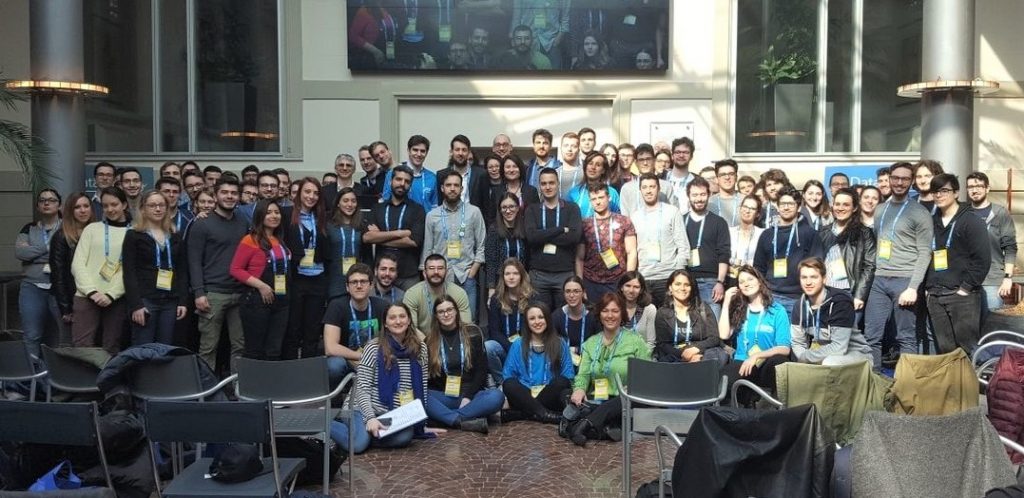What if a famous soccer team asks you to predict how many tickets for their next match will be sold to women?
Seventy students from Bicocca University of Milan tried to answer this question a couple of weeks ago. They were divided into 19 groups during a hackathon that SAS hosted in its office in Milan. SAS Hackathon was organised in collaboration with three different departments of the Bicocca University (statistics and quantitative methods; IT systems and communication; and quantitative methods and business strategy in economics).
I saw students working for 12 hours in a row without even stopping to eat. So, like a real “mom,” I brought food to the most tireless of them.
The students spent two days dedicated to a machine learning project, based on a data set made available by AC Milan, the Italian soccer team. The final goal was to develop an analytics model on SAS® Viya® to predict if, in the next Milan match, they would have sold more or less than 15 percent of tickets to women.
Being side by side with these motivated, willing and smart students for 48 hours gave me an extraordinary energy. Being part of the jury has been an honour and pleasure. We worked with passion, and it was a joy to see those students working on the SAS Platform, testing their analytics skills.
I’ve always felt that society must build more big data and artificial intelligence skills in young students. I must say it was a relief to experience #SASHack. I noticed we have some young, skilled and proactive young people. And we also have open tools and technology that are needed to help them grow as professionals.
I didn’t just notice passion in these 70 students. They also had a completely different approach to new technology and platforms. In addition, the four winning teams showed a strong data storytelling approach that I didn’t expect.
I’ve recently read an article by Ed Hess, professor at Darden School of Business of the University of Virginia, published by The Financial Times Limited and reprinted in Italian by Il Sole 24 Ore, where he highlighted the importance of students thinking about the quality of their skills more than the quantity. "Intelligence cannot be defined by an individual’s knowledge, because machines will always be able to know more than humans. Probably the most important skill that students should expand is how to learn in an interactive way, unlearning and learning in a continuous cycle."
The world goes faster and faster – we know that. It is essential that companies like SAS help people, not just students, to adopt a new mental approach of expressing themselves by adapting their analytic proficiency and critical sensibility to whatever business context they are in.
We live in a data world, and young people know it. Most of them have already understood that they have to merge what they learned during their studies with additional skills. More analytically focused skills that are necessary in the data-driven economy we are experiencing.
If you want to know more about the winning project from #SASHack, register at SAS Forum Milan on May 15. You’ll have the chance to listen to the four winning groups in one of the parallel sessions in the afternoon.


1 Comment
thats great move of unity in data research on development